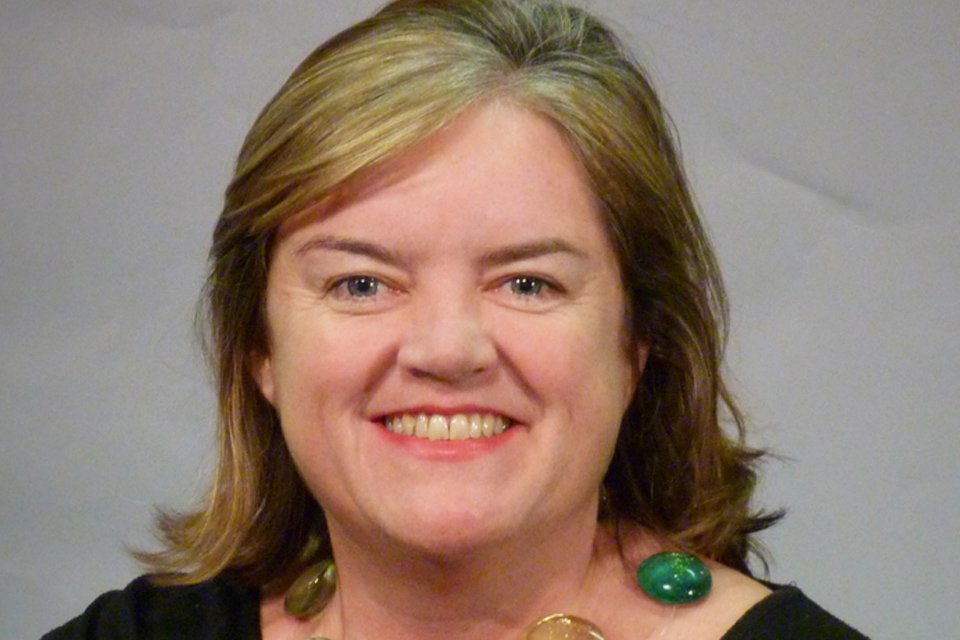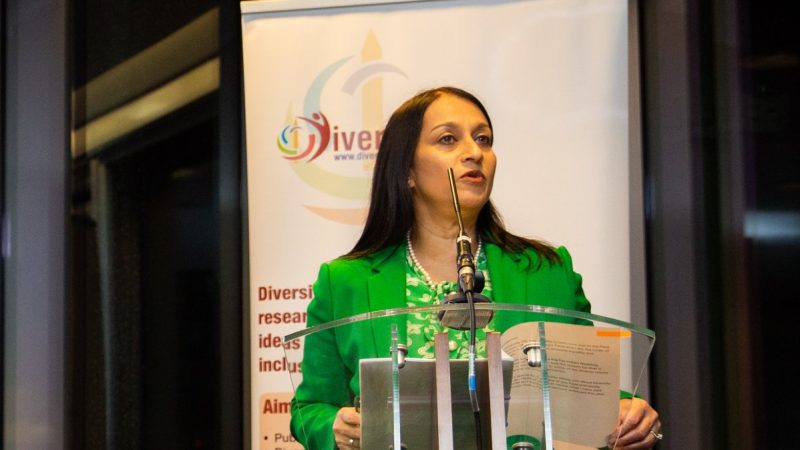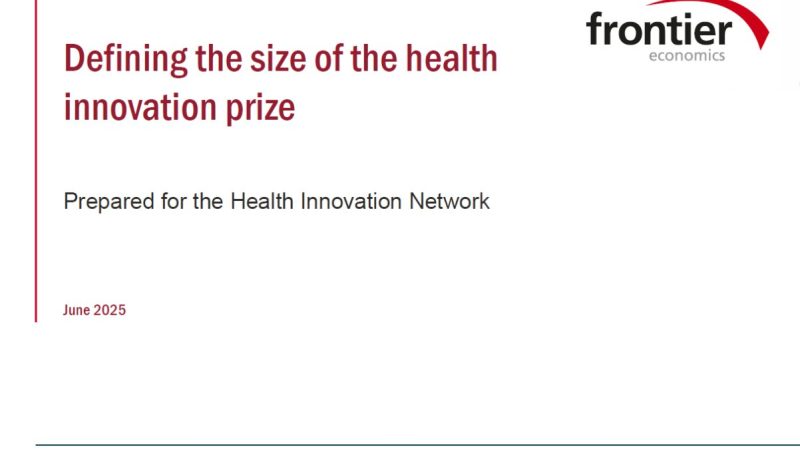Casey Review finds London’s Met Police is failing women & children

Baroness Louise Casey’s final report into the Metropolitan Police has today found severe institutional failings across the organisation that will require radical reform to resolve.
The Crossbench Peer was commissioned to review the culture and standards of London’s police service in the wake of the rape, abduction and murder of Sarah Everard by a serving Met officer, and a series of other scandals that have shattered public confidence in the force.
Following a year-long investigation, in her final and full report, today Baroness Casey has laid bare deep and wide shortcomings across the force, including that:
- The Met is failing women and children
- After a decade of austerity, frontline policing has been deprioritised and degraded
- There is institutional racism, sexism and homophobia, inside the organisation in terms of how officers and staff are treated, and outside the organisation in terms of how communities are policed
- And it is unable to police itself
Baroness Casey assesses that all of this means that policing by consent in the capital is broken. And that the biggest single barrier to fixing the force is the Met’s culture of defensiveness and denial about the scale of its problems.
In response to these challenges, the Review recommends that the Met must:
- Better protect women and children with a dedicated women’s protection service; introducing a new children’s strategy; and re-instating sexual and domestic abuse services as specialist functions.
- Re-invest in and reprioritise frontline policing by restoring visible neighbourhood policing; giving a higher status to frontline work; and creating stronger local leadership.
- Take rapid steps to end discrimination internally in its recruitment, development and promotion processes, and in its internal misconduct system; and externally by policing all communities equally including with a reset of Stop and Search.
- Clean itself up by bringing in an independent team to run its misconduct system; introducing higher vetting standards and new end to end processes that stop those who are intent on abusing their position as police officers; tackling toxic cultures with clearer statements of standards for all and tougher enforcement of them; and disbanding and reforming ‘dark corner’ units where some of the worst behaviours have been found and officers are equipped to carry lethal firearms.
- Improve its leadership and accountability with a new policing board for London led by the Mayor; and a new policing deal for Londoners that acknowledges historic mistakes and prioritises securing the consent of the public to police them.
The report sets out a series of measures by which success should be judged and concludes that, if sufficient progress is not being made at points of further review, more radical, structural options, such as dividing up the Met into national, specialist and London responsibilities, should be considered to ensure the service to Londoners is prioritised.
Baroness Casey said:
“I absolutely recognise the commitment that Met officers make to protecting the people of our capital city every day. They put themselves at risk to keep us safe and always deserve our thanks and support.
“But everyone within the Met also now needs to recognise that its failings go well beyond the actions of ‘bad apple’ officers. My report makes clear that, on top of the unimaginable crimes of individuals and the shocking series of events that have hit the service in recent years, the way in which the Met has responded to them is also a symptom of a wider malaise in an organisation that has fundamentally lost its way.
“The Met can now no longer presume that it has the permission of the people of London to police them. The loss of this crucial principle of policing by consent would be catastrophic. We must make sure it is not irreversible.
“It is fixable if the Met recognises the true scale of the challenge in front of it, with drastic and effective action. The Met must be prepared to accept stronger outside challenge and scrutiny. It needs strong leadership and all its officers and staff to be behind the changes required. It needs a women’s protection service, a new children’s strategy and neighbourhood policing teams back on the streets. It must move quickly towards looking like the brilliantly diverse city it polices, end its discriminatory practices and earn the trust of all communities. And it must be prepared to confront and remove those who won’t accept the basic standards of a modern, 21st century police service. Decent police officers deserve nothing less. London deserves nothing less.”
The Mayor of London, Sadiq Khan, said: “Following a series of scandals, I asked for this independent review to be conducted by Baroness Louise Casey because I was deeply concerned about the cultural issues and systemic failings within the Met.
“The evidence is damning. Baroness Casey has found institutional racism, misogyny and homophobia, which I accept. She has described the Met as defensive, resistant to change and unwilling to engage with communities.
“As Mayor, I’ve already acted to put the Met on a path of far-reaching systematic and cultural reform, with the appointment of a new Commissioner and leadership team who acknowledge the scale of the problems and are committed to change. But clearly much more needs to be done, and fast.
“I have been determined as Mayor to shine a light on the true extent of the cultural problems in the Met as this is the only way to properly address the deep-rooted issues and regain the trust of Londoners. This review simply must be a turning point and I expect all the recommendations to be implemented quickly and in full.
“I want to assure Londoners that I’ll be unflinching in my resolve to support and hold the new Commissioner to account as he works to overhaul the force. The Met has many committed, professional police officers and staff who want to be part of this change. I see police reform as a critical part of my mayoralty and I will not be satisfied until Londoners have the police service they deserve – one that is trusted, representative and delivers the highest possible service to every community in our city as we work to build a safer London for everyone.”
Association of Police and Crime Commissioners (APCC) Chair Marc Jones said: “This report makes for difficult and distressing reading and will undoubtably shake the very foundations of the public’s trust and confidence in policing across the board.
"As the public’s representatives to policing we will not shy away from the hard truths in this significant report. It is time to shine a light on the darkest corners of unacceptable culture and practices within policing and other public service areas too. We will be reviewing it in detail and will work with our national partners to ensure any broader recommendations are acted on.
“The need for strong and effective public oversight and governance for policing across the whole of the UK has never been greater. Our priority as Police and Crime Commissioners is to hold Chief Constables accountable on behalf of the public, to see trust and confidence in policing restored and retained. We will not falter in our determination to see them root out misogynistic, homophobic, and racist behaviour at the earliest opportunity.”
Independent Office for Police Conduct (IOPC - formerly IPCC) interim Director General Tom Whiting yesterday said:
“This must be a watershed moment for the leadership of the Metropolitan Police.
“The Met must learn and reflect on Baroness Casey's stark findings - and seize this opportunity to fundamentally change its culture. We rightly cherish the principle of policing by consent but this relies on the trust and confidence of the public. If we want this to continue then the Met must demonstrate that it is committed to making the changes that are so clearly needed by implementing Baroness Casey’s recommendations.
“The Met cannot do this alone. There is a need for fundamental reform to policing as a whole to improve standards, root out wrongdoers, deal with poor performance, and support police officers to be the best they can be.
“At the IOPC, as the police complaints watchdog we will continue to hold policing to account, and use learning from our work to highlight where improvements are needed. We will also work with police and others to identify how the system can be reformed and what needs to be done to make it happen.”




